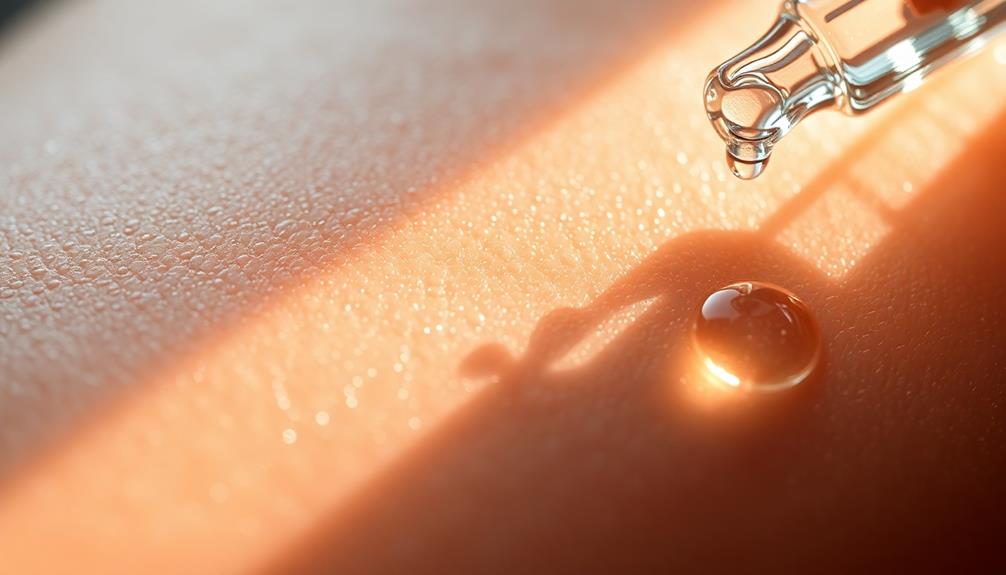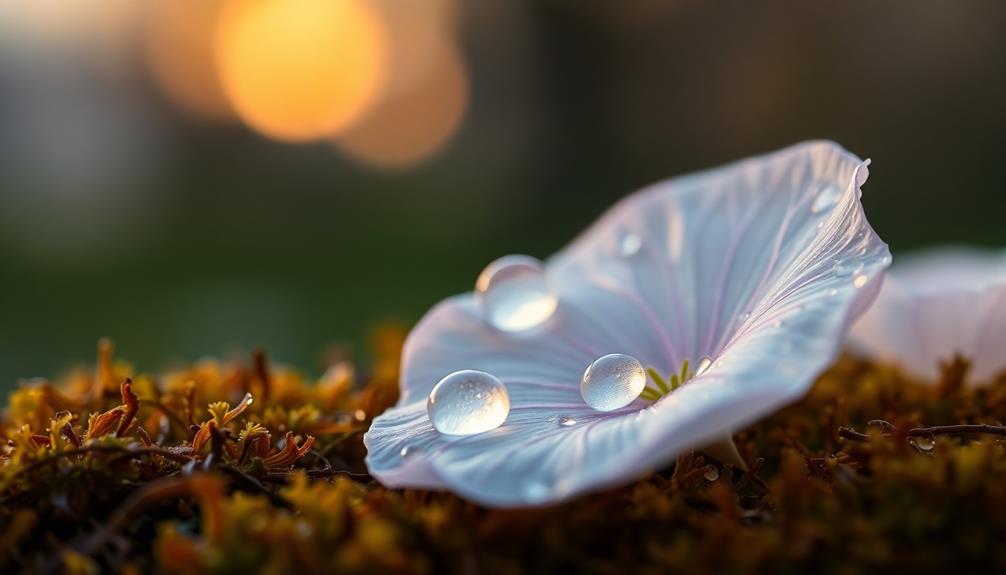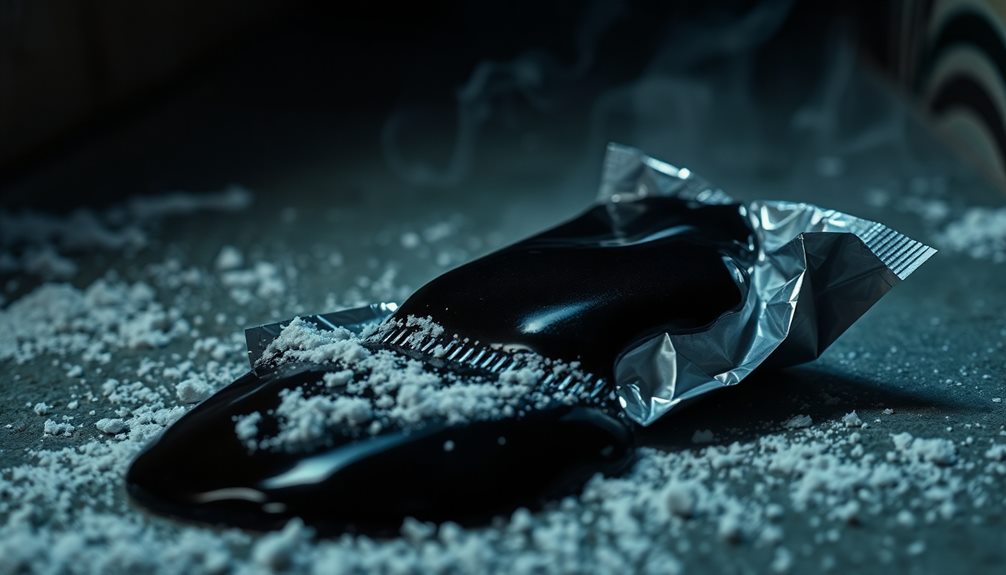Sebum has a musky smell that can be quite interesting! Depending on your diet, genetics, and the bacteria on your skin, this smell can change. Some people describe it as oily or waxy, while others say it's a bit like cheese or has a slightly rancid scent. When you're active or it's warm outside, sebum production increases, making the smell stronger. It's also good to know that a strong odor can signal health or hygiene issues, so keeping clean is super important! If you're curious about how sebum changes or affects us, there's even more to discover!
Key Takeaways
- Sebum typically has a musky, oily, and waxy odor that can vary by individual.
- The scent can resemble cheese or slightly rancid smells due to bacterial breakdown.
- Factors like diet, hygiene, and skin microbiome diversity influence the intensity of sebum odor.
- Increased sebum production, often due to warm weather or physical activity, results in a stronger scent.
- Changes in sebum smell may indicate health concerns, such as hormonal imbalances or certain medical conditions.
Introduction
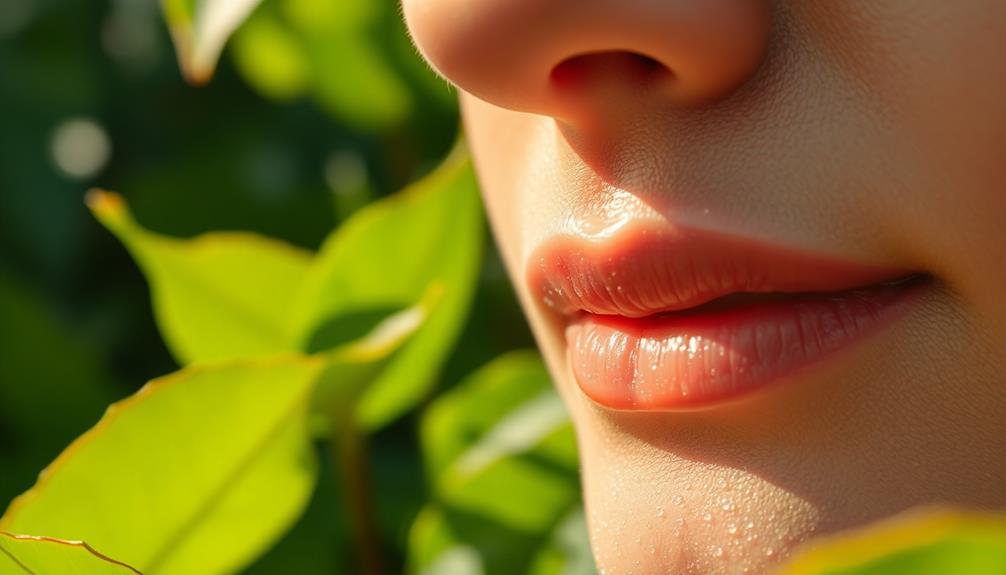
Sebum, your skin's natural oil, often emits a musky odor that can vary from person to person. This smell comes from how your body produces sebum, and it changes based on things like diet and genetics. Isn't that interesting?
Some people might notice a stronger scent due to how much sebum their skin makes, especially in spots where bacteria love to hang out, like your armpits and scalp.
You see, bacteria on your skin can break down sebum and create even more smells, which is part of what contributes to body odor. If you've ever noticed your skin smelling different, it might be linked to your sebum. For some, a change in this smell could signal that something's going on health-wise, so it's good to pay attention.
Also, did you know that people with certain conditions, like Parkinson's disease, might've a unique sebum smell? This shows how complex our bodies are!
Understanding your body's signals, including the smell of sebum, can help you stay healthy and fresh. Remember, everyone's scent is a little different, and that's perfectly normal!
Description of the Smell
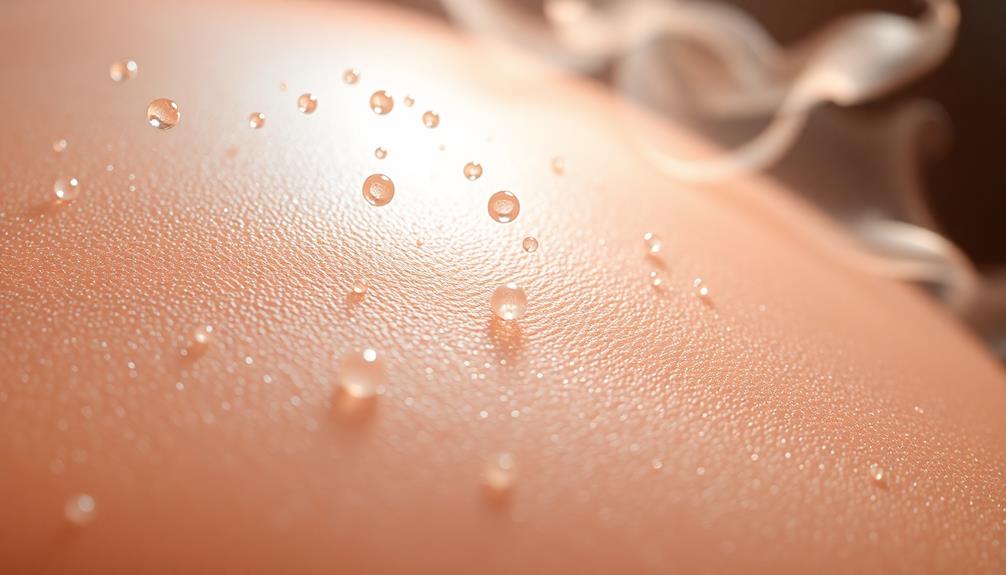
Often, people describe the smell of sebum as musky and oily, with a waxy undertone that can be reminiscent of cheese or even a slightly rancid scent.
This unique sebum smell can change based on your skin and health. When skin bacteria break down sebum, they produce volatile organic compounds. These compounds are what really influence body odor, making it an interesting mix of smells.
If you have more sebum, like on your scalp or face, you might notice a stronger scent. Imagine that—your skin working hard to keep you healthy!
But sometimes, the odor can hint at health issues. For example, if someone has Parkinson's disease, their sebum might smell different due to its chemical makeup.
Source and Composition
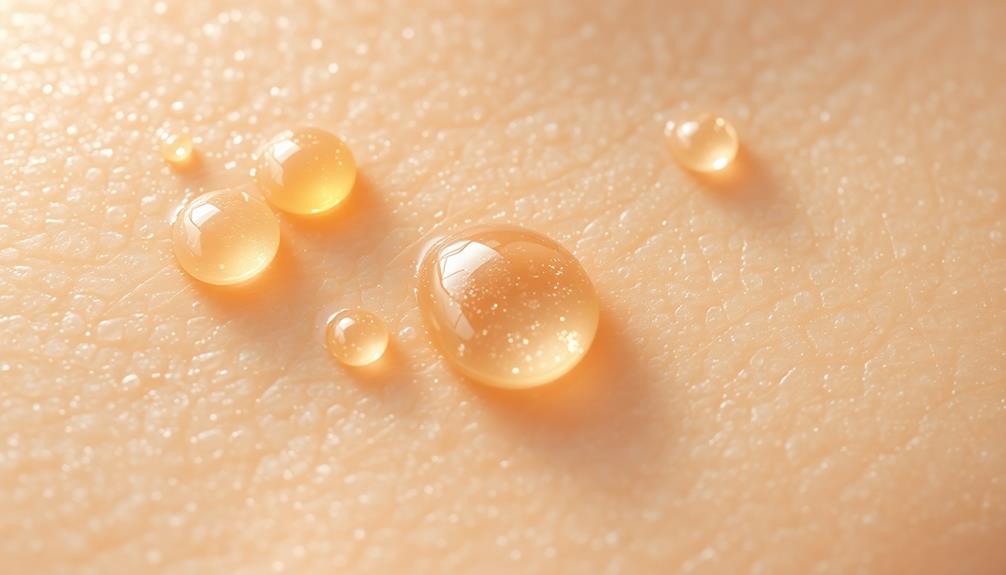
The source of sebum lies in the sebaceous glands, which are found throughout your skin, especially on the scalp and face. These tiny glands work hard to produce sebum, an oily, waxy substance that helps keep your skin moisturized.
Sebum is mostly made up of lipids, including triglycerides and fatty acids, which play a big role in its unique odor. The composition of sebum can change based on what you eat, your hormones, and even your genetics. That's why some people might notice a stronger smell than others.
Sometimes, when there are more fatty acids in sebum, it can create a distinct musky odor. This is especially true for individuals with certain health conditions, like Parkinson's disease.
You might describe the smell of sebum as oily or greasy. When sebum mixes with bacteria on your skin, it can even smell a bit like cheese!
The pH level of sebum, which is usually between 4.5 and 6.0, helps keep your skin microbiome balanced. This balance is important because it can influence the odor that's produced. Isn't that fascinating?
Typical Scenarios or Environments
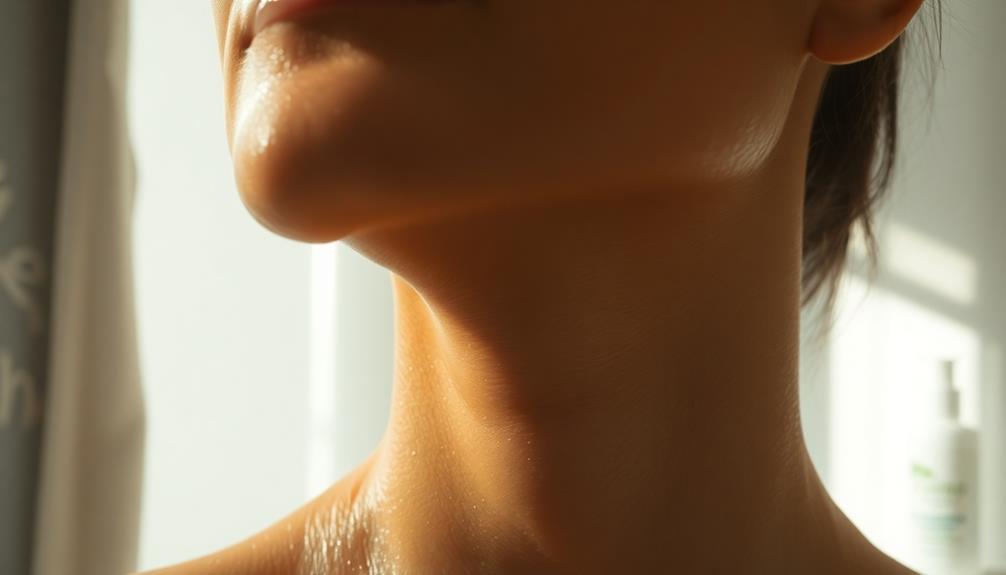
In everyday life, you might encounter the distinctive smell of sebum in various scenarios, particularly during warmer months or after intense physical activity.
When you're sweating, the warmth and moisture can cause your skin to produce more sebum. This oily substance can mix with sweat and bacteria, leading to a stronger body odor.
People often notice this scent when they're enjoying outdoor activities in the sun, like playing sports or hiking. You might catch a whiff of that musky smell when you're in close quarters with friends after a game.
Interestingly, for people with Parkinson's disease, their sebum might've a unique scent that's different from normal body odor. This change can be stronger, and it might even alert healthcare professionals to potential health issues.
Your diet, personal hygiene, and even the tiny microbes living on your skin can change how sebum smells.
If you have a diverse skin microbiome, you might notice a lighter scent. But if there are many bacteria, the smell could be more pronounced. This is because certain bacteria break down sweat into compounds that produce stronger odors. The more varied your microbiome, the more balanced the scent tends to be. However, if there’s an overgrowth of specific bacteria, it might result in something reminiscent of what surströmming smells like—distinctly pungent and lingering.
Emotional or Cultural Associations
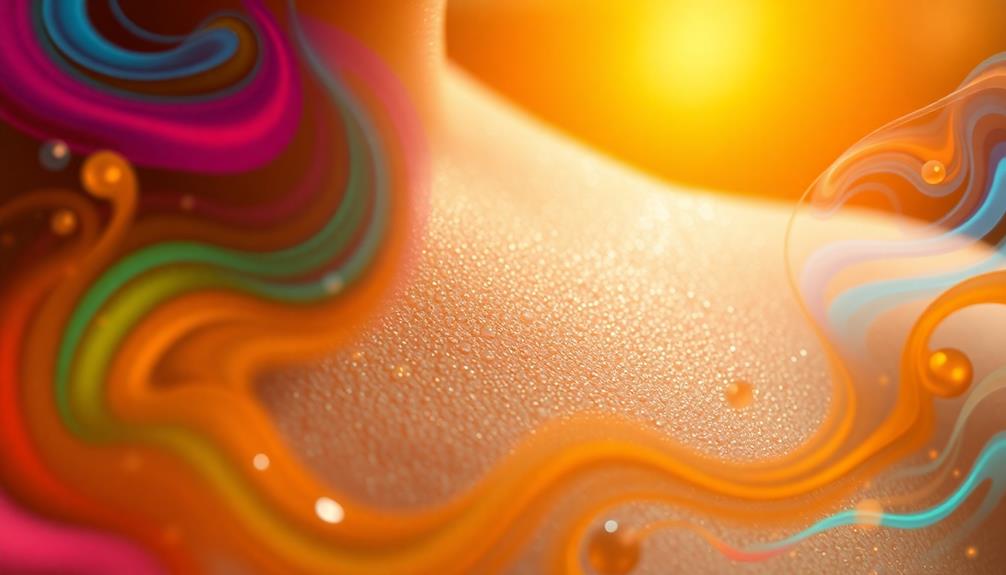
While many people mightn't think about it, sebum's distinct musky odor can trigger a range of emotional responses tied to personal hygiene and self-image. Your feelings about body odor can be deeply influenced by cultural perceptions. In some cultures, that natural scent, including sebum, is celebrated as a sign of health and vitality. It can make you feel connected to your roots and even boost your self-perception.
However, in other cultures, the same smell might be viewed as undesirable. This difference can lead to mixed feelings, like embarrassment or shame, especially if you think others judge you based on your scent. When you notice sebum odor, it can remind you of your own experiences, shaping how you view not just yourself, but also how you perceive others.
These emotional responses are important. They reflect our society's norms around cleanliness and attractiveness. If you feel confident and accepted, you're more likely to embrace your natural scent. But if you feel stigmatized, it can affect how you carry yourself.
Understanding these cultural and emotional layers can help you appreciate the complexity of something as simple as a smell!
Health or Safety Considerations
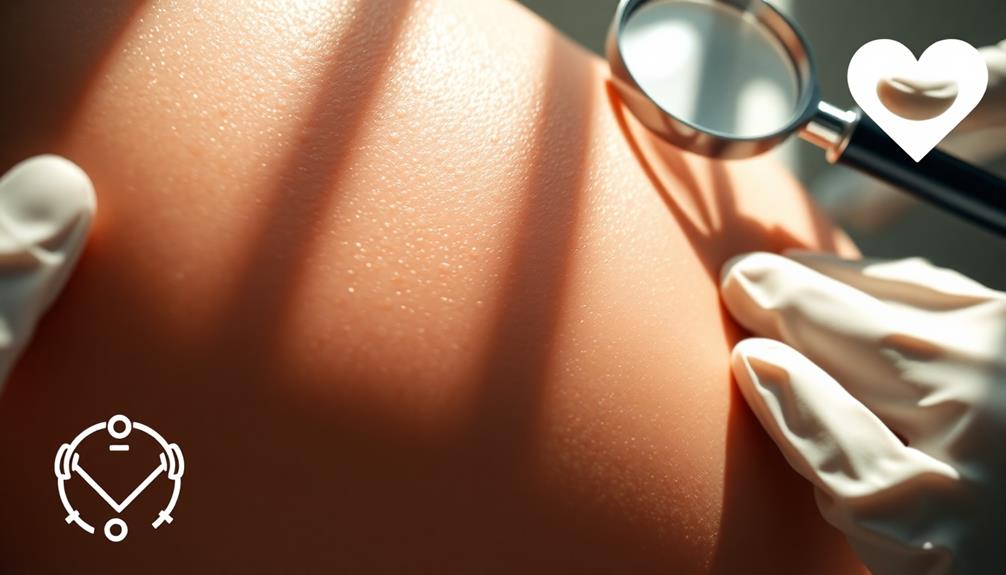
Many people mightn't realize that sebum's odor can offer insights into overall health and hygiene. Sebum, that natural oil your skin produces, typically has a musky or oily smell. This scent can change based on your skin chemistry and the bacteria living on your skin.
When bacteria break down sebum, they create compounds that contribute to body odor, especially in places like your scalp and armpits.
If you notice a stronger sebum smell, it could be due to medical conditions like Parkinson's disease. In these cases, the composition of sebum might change, making the scent more noticeable.
Additionally, poor hygiene and too much sebum can lead to stronger odors, as they invite more bacteria to thrive.
Your diet, hormones, and the health of your skin microbiome can also affect how sebum smells. So, if you find yourself with an unusual body odor, it might be worth paying attention to these factors.
Keeping your skin clean and balanced is essential for a pleasant scent. Remember, your body's signals can be a window into your health!
Final Thoughts
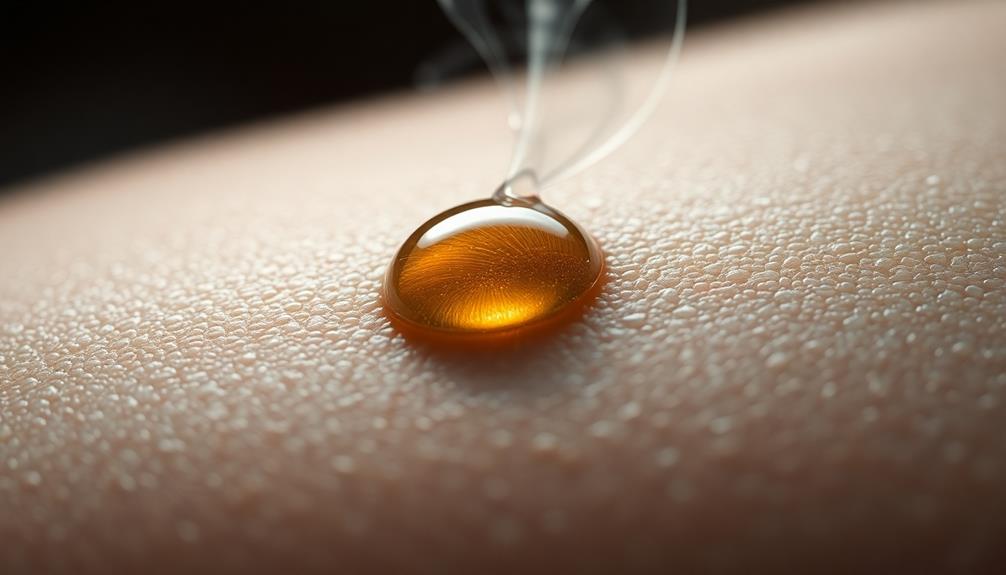
Understanding the nuances of sebum smell can help you better manage your skin health and overall well-being. Sebum, which your sebaceous glands produce, typically has a musky odor. This smell can change based on your health and hormones. For example, if you have Parkinson's disease, your sebum might develop a distinct smell. This unique odor could even help doctors spot the disease early!
But wait, there's more! Bacteria on your skin, like Corynebacterium, can make sebum smell stronger. These tiny creatures produce compounds that can add to body odor, especially in places where sebaceous glands are active.
So, if you notice a change in your smell, it might be connected to changes in sebum production. Your diet, genetics, and how you care for your skin also play a role. Keeping your skin healthy can help manage the smell of sebum and body odor.
Frequently Asked Questions
Does Sebum Have a Scent?
Yes, sebum does have a scent. It's generally mild and musky but can become more pronounced due to bacteria on your skin or certain health conditions, making it noticeable in some individuals.
Why Does My Sebum Smell Fishy?
If your sebum smells fishy, it could be due to bacteria breaking it down, producing odor-causing compounds. Poor hygiene or metabolic issues can worsen this smell, so maintaining cleanliness and skin balance is essential.
How to Get Rid of Sebum Smell?
To get rid of sebum smell, cleanse oily areas regularly, exfoliate weekly, and use prebiotic products. Incorporate a healthy diet and consider enzyme-based laundry detergents to eliminate odors from clothing and linens effectively.
What Does Sebum Taste Like?
You won't find a distinct taste to sebum since it's primarily oily and fatty. If it touches your mouth, you might perceive a slight oily flavor, but it's not something most people experience.
